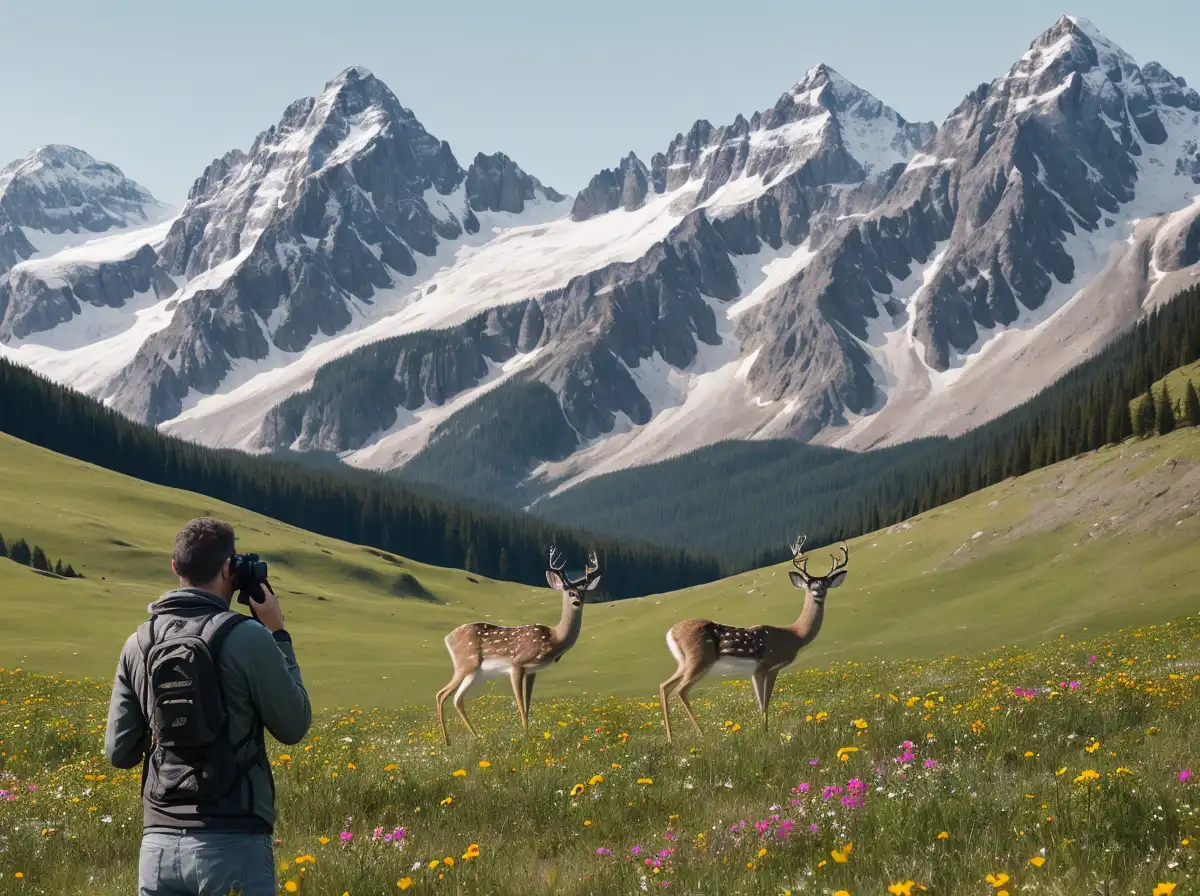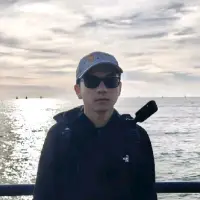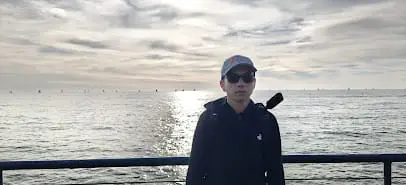How I Learned To Zoom Out — Stepping Back To See My Big Picture

I believed the closer I got, the more I saw. That might've been wrong.
Bigger Is Better
About a year ago, I obtained a key insight from videography that I feel was significant in a broad life sense too.
I started freezing moments in my life with an old Gray Canon camera in 3rd grade. My gear progressed as the years progressed, going to a Lumix FX-35, Panasonic HC-V550, then a VX-1
Apart from image clarity and resolution, the main upgrade was higher zoom – up to 90x with the V550. I made sure to utilize this feature as much as possible.
I'd magnify the image as far as I could to fit the subject in the frame, pushing the optics' limits to fill the entire view.
I'd see the fine details of the aircraft or foliage I was filming. The depth-of-field effect was stronger, and I wouldn't need to squint to see that tiny little object.
To me, bigger was always better.
I realized my footage felt less engaging to watch after a few years. I had an inkling that what I was viewing had become repetitive. Yet I hardly felt the same when watching snippets from the lives of others.
Perhaps recounting my experiences wasn't as novel anymore, but I never considered myself a thrill-chaser. There had to be another reason, but I couldn't pinpoint the cause until I realized one day.
I removed the surroundings from my focus when I zoomed in. Anything in the background that was away from the center disappeared. Only a sliver of the environment remained in the shot.
A closeup of a bird in California hardly looked different than the avian footage I took in China. The shots of miscellaneous objects included their details – but little more.
I thought I'd enhanced the image – and I had, but only in one metric. I could see the pilot in a fighter jet and the patterns on plants' leaves. It looked sharp, crisp, and right in my face to see.
But I didn't realize the trade-off to getting so close.
For in exchange for this clarity, I lost context.
Video without the softness of depth-of-field looked crude to me. Surely, the view was too cluttered and bumpy. Nevertheless, I decided to tone down my use of those optics and capture the broader scene.
The subject became small and less prominent, but the footage felt more engaging. With consistent zoom, I could sense the depth and distance of that jet roaring away.
The surrounding buildings provided a sense of size, speed, and position. The infinite expanses of a blue sky did not, especially when the foreground was always framed identically.
I focused less on the object's intricacies but gained crucial information through the added reference points.
One could say this defined the scene as a whole.
My recordings no longer looked sterile like stock footage, but linked to the memories I was so keen on preserving in the first place – ones that were unequivocally mine.
I could distinguish one shot of a deer from dozens of others. The scene was no longer generic wildlife video #26, but a snapshot of that morning when I went to work too.
Not just the sunrise, but the routine of my first job too. Nothing lasts forever. I'll inevitably work someplace else – maybe even move to another city.
That deer will remind me of the years I spent here. The sights there were to see in the suburbs compared to the city, and the unique facets of my life in 2024.
So, that begs the question – how can some life lesson or morale be shoehorned into this realization?
Well, I can apply this concept to my experiences too.
The feelings of pointlessness have never permeated so strongly since I started my job. Even if I hate the negative situations, work is everything compared to feeling cast aside and unwanted – like when I suffered to gain employment.
I feel better, even if I'm pissed at times. But I'm also tired. Not in a critically damaged sense – an airy but fatigued one. My mind remains blank, and I lack the energy to do much of anything I used to.
The effects on my mind encapsulate the dystopian corporate vibe – the death of creativity. I often wonder if this is the end of the road.
Perhaps 8 years of failure were for naught. Nothing I made was ever significant, and it's like I'm still right at the beginning regarding my work's quality.
I still have little clue how to progress.
I had all the time in the world before I secured employment, but I failed to make anything of it. Instead, I remained in limbo as I just tried to keep myself alive.
I am now destined for 40 years of labor – if lucky. My volunteer software endeavors dwindled to mere hours a week. I couldn't bring myself to open this text editor for a month.
Maybe my work is destined to fade away. As with the knowledge I've gained – my limited memory overwritten by the day-to-day burdens.
I look at what's before me and see nothing in this moment. But perhaps zooming out makes it clearer. I can choose a reference point that defines my snapshot in time.
The progress becomes apparent when juxtaposed with the past – one that feels like yesterday yet so long ago too. Idealism turned to realism, a crash followed by a slow rise again.
What I wanted to achieve hasn't manifested. The goals themselves have come and gone, leaving only uncertainty as to what's next. Yet without a doubt, I know more now than I did before.
Further significance will emerge from the backdrop of time. The meaning, or lack thereof, of unfruitful months or years. The path forward and progress will show in hindsight.
Or maybe the culmination won't happen – a possible realization in itself. It's anyone's guess as to how this story will resolve, apart from the one certainty waiting at the end.
Many situations call for me to zone in on my subject, but just as important is to retain details beyond that. Every element grows in significance – in the big picture.
It might be just a deer. But that deer can mean so much more.
Thank you for reading.
You've reached the end for now. But this is only the beginning.

